
Health is a crown on the heads of the healthy that only the sick can see.
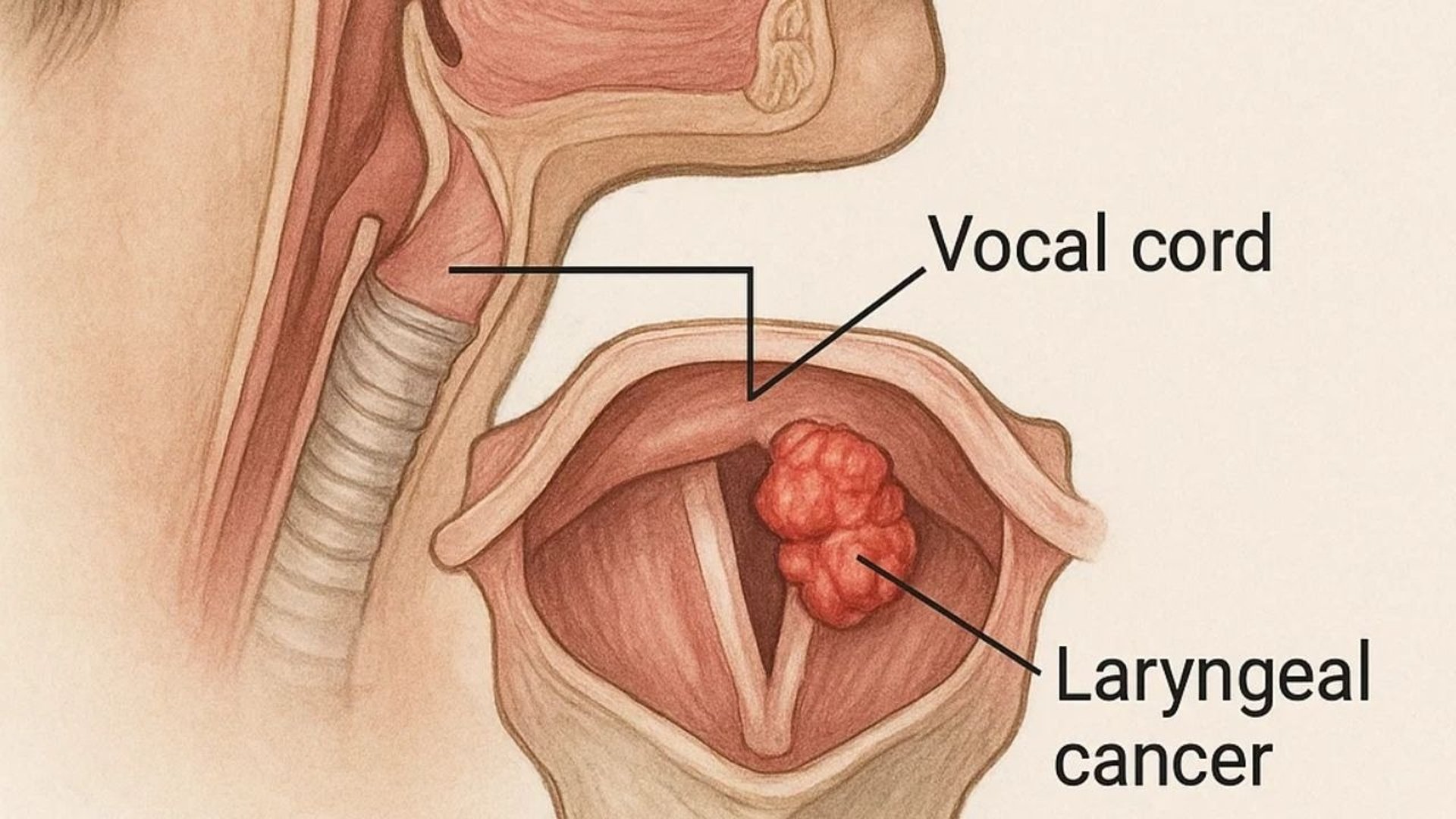
🔊 When the Voice Speaks of Illness : Vocal Cord Cancer
🔊Discover the causes, symptoms, treatment and natural healing strategies for laryngeal cancer. Learn how Dr. Hassan Al Warraqi’s holistic approach supports recovery, immunity, alongside treatment .
Dr Hassan Al Warraqi
10/18/202512 min read
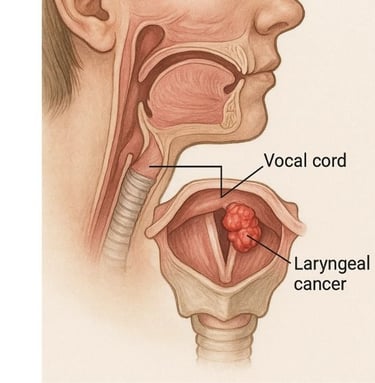

🔊 When the Voice Speaks of Illness : Vocal Cord Cancer
🔊Discover the causes, symptoms, treatment and natural healing strategies for laryngeal cancer. Learn how Dr. Hassan Al Warraqi’s holistic approach supports recovery, immunity, alongside treatment .
What You Need to Know
Laryngeal cancer, often called vocal cord cancer, is a type of throat cancer that starts in your larynx, or voice box.
The larynx houses your vocal cords and is indispensable for speaking, breathing, and swallowing, so cancer here can cause problems with all of those things.
Most of the time, this cancer is connected to smoking, but it's important to know that people who don't smoke can also get it.
Types of Laryngeal Cancer
When we talk about throat cancer, we're including cancers in both the pharynx (your throat) and the larynx.
Laryngeal cancer is focused specifically on the voice box.
There are a few specific types
Glottic cancer : This starts right on the vocal cords themselves.
Supraglottic cancer : This begins in the upper part of the larynx, which includes a flap called the epiglottis which prevents from choking while eating.
Subglottic cancer : As the name suggests, this one starts in the lower part of the larynx, below the vocal cords.
Doctors sometimes classify laryngeal cancers by where they start to assess the possibility of potential treatments options:
Intrinsic : These cancers start inside the larynx cavity itself.
Extrinsic : These cancers originate on the edge of the larynx and the surface of the pharynx.
What Causes Vocal Cord Cancer?
Smoking : The biggest culprit is smoking.
Most cases of laryngeal cancer are directly related to smoking.
And if you smoke and drink alcohol, the risk is even higher than either one alone.
Heavy Alcohol Use Regular, heavy drinking increases your risk.
HPV Infection : Human papillomavirus (HPV), especially type 16, can cause laryngeal cancer.
Epstein-Barr Virus : Infections from this virus could be related to the formation of laryngeal cancer.
Poor Diet : Not eating enough fruits and vegetables can bump up your risk.
GERD : That's gastroesophageal reflux disease, or chronic acid reflux.
Workplace Exposure : Being around toxic chemicals at work can contribute.
Chronic Laryngitis : Long-term voice strain or throat inflammation can also turn into laryngeal cancer.
Demographics : It's more often diagnosed in men and people over 50, usually around age 65.
We’re, however, seeing more HPV-related cases in younger people.
What Are the Symptoms?
The early signs can be subtle, so it's important to pay attention:
Voice Changes : This is often the first thing people notice.
If you're hoarse for more than a couple of weeks, get it checked out.
Sore Throat : A sore throat that just won't go away, even with antibiotics.
Trouble Swallowing : It might hurt to swallow, or it might just be difficult.
Coughing : A chronic cough, or coughing up blood.
Lump in the Neck : Any new, unexplained lump.
Ear Pain : Pain in your ear, which is actually referred pain from the throat, is possible.
Noisy Breathing : High-pitched breathing sounds.
Weight Loss : Losing weight without trying.
Important : If a voice change lasts longer than 3-4 weeks, see an ear, nose, and throat (ENT) specialist.
How Is It Diagnosed?
Medical History and Exam : The doctor will ask about your background and do a basic checkup.
Laryngoscopy/Endoscopy : A tiny camera goes down your throat so the doctor can see your vocal cords and larynx.
This is super important for seeing how your vocal cords are working.
Biopsy : They'll take a small tissue sample to see if there are cancer cells.
Imaging Tests
* CT scans provide detailed pictures.
* MRI scans use magnets to make images.
* PET scans can show if the cancer has spread.
Advanced Tools :
* AI-powered diagnosis is improving accuracy in the field.
Tools like LPCANet analyze histopathological images to distinguish healthy voices, laryngeal cancer, and other laryngeal conditions, showing accuracy improvements over traditional methods.
How Is Laryngeal Cancer Staged?
Doctors use something called the TNM system to figure out what they're dealing with:
T (Tumor) : This describes how big the main tumor is and if it has spread. In the TNM system, staging would be classified as:
* T1: Tumor at one larynx site
* T2: Tumor at two larynx sites
* T3: Tumor causes vocal cord immobility
* T4: Tumor extends beyond larynx
N (Node) : This tells if the cancer has spread to nearby lymph nodes.
In the TNM system, staging would be classified as:
* N0: No neck spread
* N1: One node <3cm
* N2: Multiple nodes or bilateral nodes up to 6cm
* N3: Node >6cm
M (Metastasis) : This indicates whether the cancer has spread to other parts of the body.
* M0: No metastasis
* M1: Metastasis present
Then those T, N, and M scores get combined into an overall stage:
Stage I : T1, N0, M0
Stage II : T2, N0, M0
Stage III : T3, N0, M0 or T1-T3 with N1, M0
Stage IV : T4 or N2-N3 or M1
Note : It's worth mentioning that clinical staging can be inaccurate about half the time, mostly because it's hard to tell exactly how deep the tumor has gone, and the exact percentage of inaccuracy is 46%. Also, 89% of errors occur because tumor invasion depth is underestimated.
How Is It Treated?
Treatment depends on a bunch of things:
the type of cancer, how big it is, what stage it's in, and your overall health.
Surgery :
* Laser surgery uses a laser to cut away small surface tumors.
* Partial laryngectomy takes out part of the larynx and attempts to keep your speech intact.
* Hemilaryngectomy removes half of the larynx while preserving your voice.
* Total laryngectomy is a removal of the entire voice box, which means you'll need a tracheostomy (a hole in your neck to breathe).
Radiation Therapy : High-energy beams destroy cancer cells.
This is sometimes the first thing doctors try.
They might use hyperfractionated radiation, which is smaller doses twice a day.
Chemotherapy : Special drugs kill cancer cells or stop them from growing.
It's often used with radiation.
Targeted Therapy and Immunotherapy
* Immunotherapy uses medicines that help your immune system fight the cancer like nivolumab or pembrolizumab.
* Targeted therapy uses drugs (like cetuximab) that target specific things on cancer cells.
Treatment by Stage :
* Early stages (I and II) are often treated with radiation or surgery and are typically successful.
* More advanced stages might need chemotherapy and radiation together, or surgery.
The goal is to save as much of the larynx as possible and keep your quality of life as good as it can be.
What's the Outlook?
* If the cancer is caused by HPV, the outcome can be better.
* Finding it early makes a huge difference.
* Your chances of surviving for 5 years are:
* Over 80% if it's caught early
* Under 40% if it's advanced or has spread
The cancer is most likely to come back in the first 2-3 years after treatment is completed.
What Can You Do to Prevent It?
* The best things you can do are:
* Stop smoking and stay away from tobacco.
* Drink less alcohol.
* Get the HPV vaccine (Gardasil 9).
* Eat a healthy diet loaded with fruits and veggies.
* If you have GERD, get it under control with lifestyle changes and meds.
* Supportive Natural Measures
* Rest your voice and stay hydrated.
* Control acid reflux.
* Honey can be good for your throat's health.
* An anti-inflammation diet might help in some ways (but under a doctor's watch).
When to See a Doctor
See an ENT doctor if you have:
* Hoarseness that lasts more than 2-3 weeks
* Throat problems that won't go away
* Any lumps in your neck
* Trouble swallowing or changes in your breathing
Follow-Up Care
You'll need to be monitored regularly to:
* See how well you're healing
* Deal with any side effects from treatment
* Catch any recurrence early
* Get help with speech and swallowing
Key Points
Vocal cord cancer is mostly beatable if you catch it early.
Don't ignore voice changes that last for more than a few weeks.
Quitting smoking, getting the HPV vaccine, and seeing your doctor regularly are key.
If something feels off, get it checked!
Frequently Asked Questions (FAQs) about Vocal Cord Cancer (Laryngeal Cancer)
What is the difference between throat cancer and laryngeal cancer?
Throat cancer is a broad term including any cancer in the pharynx (throat) or larynx (voice box).
Laryngeal cancer specifically refers to cancer developing in the larynx, where the vocal cords are located.
All laryngeal cancers are throat cancers, but not all throat cancers are laryngeal cancers.
Can you get vocal cord cancer if you don't smoke?
Yes, while smoking is the biggest risk factor, non-smokers can develop laryngeal cancer.
Other causes include HPV infection (especially HPV-16), heavy alcohol use, chronic acid reflux (GERD), exposure to workplace toxins, and genetic factors.
HPV-related cases are increasingly common in younger, non-smoking adults.
What are the first signs of vocal cord cancer?
The earliest and most common sign is persistent hoarseness or voice changes lasting more than 2-3 weeks.
Other early indications include ongoing sore throat, difficulty swallowing, throat pain, and the feeling of a lump in the throat.
If you experience any voice change for more than three weeks, consult an ENT specialist immediately.
Is laryngeal cancer curable?
Yes, laryngeal cancer is highly curable, especially when detected early.
Early-stage laryngeal cancer (Stage I-II) has a 5-year survival rate of over 80%.
Treatment success depends on the stage at diagnosis, tumor location, overall health, and whether the cancer is HPV-positive (which generally has better outcomes).
How long can you live with untreated vocal cord cancer?
Untreated laryngeal cancer will continue to grow and spread, dropping life expectancy.
Without treatment, the cancer can block the airway, spread to lymph nodes and distant organs, and become fatal within months to a few years.
Early detection and treatment are critical for survival.
What does a cancerous vocal cord look like?
During laryngoscopy, a cancerous vocal cord may appear as a white patch (leukoplakia), red patch (erythroplakia), irregular mass, or ulcerated lesion.
The cord may appear thickened, immobile, or asymmetric compared to the healthy cord.
Only a biopsy can definitively confirm cancer.
Can acid reflux cause vocal cord cancer?
Chronic acid reflux (GERD) is a real risk factor for laryngeal cancer.
The repeated exposure to stomach acid can irritate and damage the laryngeal tissues.
Managing GERD through lifestyle changes, diet, and medication can help reduce this risk.
Will I lose my voice after laryngeal cancer treatment?
Probably not.
It would depend on the cancer stage and the specific treatment.
Early-stage cancers treated with radiation or laser surgery can preserve normal voice function.
Partial laryngectomy may cause some voice changes but preserves your speech for the most part.
Total laryngectomy removes the voice box entirely, but voice rehabilitation techniques (esophageal speech, tracheoesophageal puncture, electrolarynx) can restore communication abilities.
How is vocal cord cancer different from
vocal cord nodules or polyps?
Vocal cord nodules and polyps are just small, non-cancerous growths caused by voice strain or irritation—they're like calluses on the vocal cords.
They cause hoarseness but aren't cancer and can't spread.
Laryngeal cancer involves harmful cells that can invade other areas.
Can HPV vaccine prevent laryngeal cancer?
The HPV vaccine (Gardasil 9) could offer protection against HPV-16 and other strains linked to some laryngeal cancers.
It is primarily associated with oropharyngeal cancer, but HPV infections are now seen in the throat.
What foods should I avoid with laryngeal cancer?
Avoid foods that irritate the throat or worsen acid reflux: spicy foods, acidic foods (citrus, tomatoes), alcohol, caffeine, fried and fatty foods, and processed meats.
Focus on a nutrient-rich diet with plenty of fruits, vegetables, lean proteins, and whole grains to support healing.
Does fasting help with laryngeal cancer?
Some research says intermittent fasting and caloric restriction may reduce stress.
Studies even mention that fasting may strengthen chemotherapy and radiation and protect healthy cells.
However, make sure you're doing this under the care of a doctor!
How often should I have follow-up appointments after treatment?
Follow up visits should be :
monthly for the first year, every 2-3 months in
the second year, every 3-6 months in the next 3 years to 5 years, and annually eventually.
You'll likely get the most feedback within 2-3 years.
Can laryngeal cancer spread to other parts of the body?
Of course, it can spread to lymph nodes first and potentially to the lungs, liver, or bones.
This is why staging is so important; early detection makes a difference in reducing the risk of the cancer spreading!
Is voice therapy necessary after laryngeal cancer treatment?
If you're trying to improve your quality of life and speaking abilities, then yes.
After treatment, patients can relearn new speaking methods if need be and improve their speaking skills.
Related Topics
* Throat cancer types and symptoms
* HPV and cancer prevention
* Voice rehabilitation after laryngectomy
* Natural throat health remedies
* Smoking cessation strategies
Hashtags
#VocalCordCancer #LaryngealCancer #ThroatCancer #VoiceHealth #Hoarseness #CancerAwareness #LarynxHealth #SmokingRisks #HPVPrevention #NaturalHealing #HoneyTherapy #Apitherapy #FastingBenefits #CancerPrevention #ENTHealth #HealingVoice #QuitSmoking #GERD #EarlyDetection #CancerSurvival
How is fasting may help throat cancer
Fasting, particularly in forms like short-term fasting (STF), intermittent fasting, or time-restricted eating (TRE), shows promising potential as an adjuvant therapy for throat cancer (often classified as head and neck squamous cell carcinoma, or HNSCC).
While research is still emerging and not all findings are conclusive, studies suggest it may enhance treatment efficacy, modulate the immune response, and target cancer cell metabolism.
However, results are mixed, and fasting should only be considered under medical supervision due to risks like malnutrition, especially in cachectic patients.
Below, I'll outline the key ways fasting may help, based on preclinical and clinical evidence.
1. Enhances Sensitivity to Chemotherapy
Cancer cells in HNSCC rely heavily on glucose for energy (via the Warburg effect). Fasting lowers blood glucose and insulin-like growth factor-1 (IGF-1) levels, starving these cells while shifting healthy cells to protective ketone-based metabolism (differential stress resistance).
In lab studies using HN5 OSCC cells (a model for throat cancer), 48-hour STF (simulated by low-glucose conditions) combined with cisplatin significantly reduced cell viability (up to 50% more than cisplatin alone) and increased apoptosis and necrosis rates (e.g., early apoptosis rose by ~32%, p<0.001).
This occurs via elevated reactive oxygen species (ROS), DNA damage, and autophagy upregulation, making tumors more vulnerable without fully protecting healthy oral cells (raising mucositis risk).
Broader reviews indicate fasting repairs DNA in normal tissues but not tumors, improving chemo tolerance and reducing side effects like inflammation.
2. Boosts Immunotherapy Effectiveness
TRE (e.g., eating within an 8-10 hour window daily) modulates the gut microbiome, enriching butyrate-producing bacteria that enhance immune checkpoint blockade (ICB) responses in HNSCC.
In a phase I/II trial (NCT05083416) of advanced HNSCC patients on immunotherapy, TRE was safe and feasible, leading to marked improvements in efficacy, including better progression-free survival via microbiome shifts affecting tryptophan and butyrate pathways.
Preliminary 2024 data showed favorable modulation of ICB responses.
Animal studies support this: Fasting reprograms natural killer (NK) cells to better infiltrate and attack tumors.
3. General Anti-Cancer Effects
Fasting triggers autophagy (cellular cleanup) and stem cell regeneration, potentially slowing tumor growth and reducing metastasis risk.
It lowers IGF-1 (a cancer growth promoter) and inflammation, while stabilizing hormones—benefits seen across solid tumors, including HNSCC.
In ongoing trials for HNSCC, prolonged nightly fasting (a TRE variant) is being tested for immunotherapy outcomes, with early signs of oncological benefits and quality-of-life improvements.
Dr. Hassan Al Warraqi’s approach to treating throat (laryngeal or vocal cord) cancer
emphasizes a holistic integration of natural healing, fasting, and modern medicine — focusing on reducing inflammation, restoring immunity, and supporting tissue repair.
Here’s an overview of his philosophy and therapeutic method:
🌙 1. Voluntary Fasting for Cellular Renewal
Purpose: Fasting activates autophagy, helping the body eliminate damaged cells and regenerate healthy tissue.recommed fasting the whole week except friday .
Effect in throat cancer: May reduce oxidative stress, inflammation, and cancer-promoting metabolic activity.
Protocol: Structured fasting cycles under medical supervision, ensuring hydration and electrolyte balance.
🍯 2. Honey & Apitherapy (Bee-Based Healing)
Manuka honey and propolis are used for their antimicrobial, anti-inflammatory, and tissue-regenerating properties.
Honey is sometimes applied orally or topically (in diluted medicinal forms) to soothe mucosal inflammation and support healing after radiation or surgery.
Bee pollen and royal jelly are used to strengthen immunity and reduce fatigue.
Bee sting used as complementary treatment
🌿 3. Anti-inflammatory & Detox Diet
Emphasis on plant-based nutrition, rich in antioxidants and omega-3 fatty acids.
Elimination of refined sugars, processed meats, and dairy, which can fuel inflammation.
Incorporation of ginger, turmeric, garlic, and black seed (Nigella sativa) as immune-supportive agents.
stop regular red meat consumption , only one time meat and once chicken .
🧘 4. Immune and Psychological Support
Encouragement of Qur’anic meditation, in one week complete reading the holy quran, and breathing exercises to reduce stress hormones that can suppress immunity.
Sleep optimization and hydration are considered vital parts of healing.
💊 5. Integration with Conventional Therapy
Dr. Al Warraqi supports collaboration with oncologists for radiotherapy or surgery when necessary.
Natural therapies are used to enhance recovery, reduce side effects, and improve quality of life during conventional treatment.
================================================================================================================================================
🧠 Symbol
🔊🧬🌿
(Represents voice, cellular healing, and natural therapy — matching the tone of healing and regeneration.)
Discover how fasting, honey therapy, and natural healing can support the treatment and recovery of vocal cord (laryngeal) cancer — integrating modern medicine with Dr. Hassan Al Warraqi’s holistic approach for restoring voice, immunity, and balance.
Dr. Hassan Al Warraqi is a medical researcher and natural therapy advocate known for integrating fasting, apitherapy, and Qur’anic healing in chronic disease management.
His holistic approach combines scientific precision with spiritual insight to restore cellular balance and strengthen immunity — helping patients find harmony between body and soul through natural and faith-based healing.
👨⚕️ Author Bio – Dr. Hassan Al Warraqi
Dr. Hassan Al Warraqi is a medical researcher and natural therapy advocate known for integrating fasting, apitherapy, and Qur’anic healing in chronic disease management. His holistic approach combines scientific precision with spiritual insight to restore cellular balance and strengthen immunity — helping patients find harmony between body and soul through natural and faith-based healing.
https://www.h-k-e-m.com/-when-the-voice-speaks-of-illness-vocal-cord-cancer
===================================================================================================================================================================================
🦴⏳Bone Fractures & Healing: Fasting as the Only Hope for Recovery
https://www.h-k-e-m.com/bone-fractures-and-healing-fasting-as-the-only-hope-for-recovery
#BoneHealing #BoneFractureRecovery #FastingAndHealing #FastingTherapy #NaturalBoneRecovery #FastingBenefits #CellRegeneration #BoneHealth #AutophagyHealing #FastingForRecovery #InjuryHealing #HolisticHealing #BoneStrength #DrHassanAlWarraqi #HKEM #HoneyTherapy #Apitherapy #ManukaHoneyHealing #ImmuneSupport #NaturalMedicine #HealingScience #HealthThroughFasting #RegenerativeFasting #SelfHealing
================================================================================================================================================
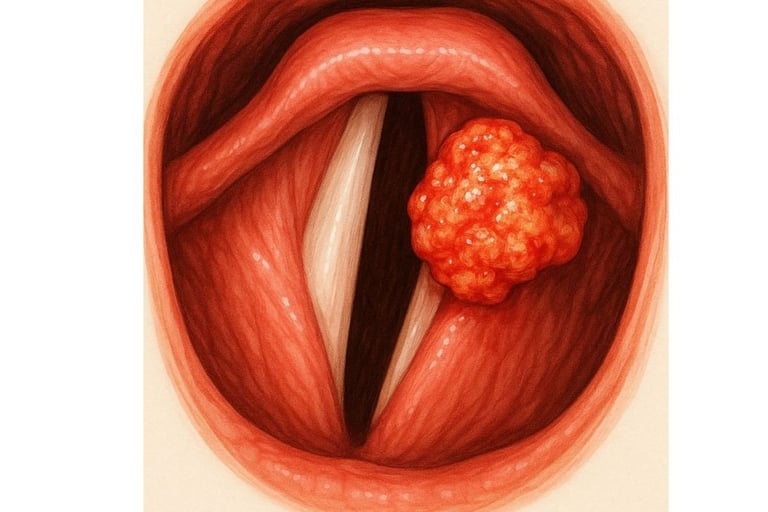

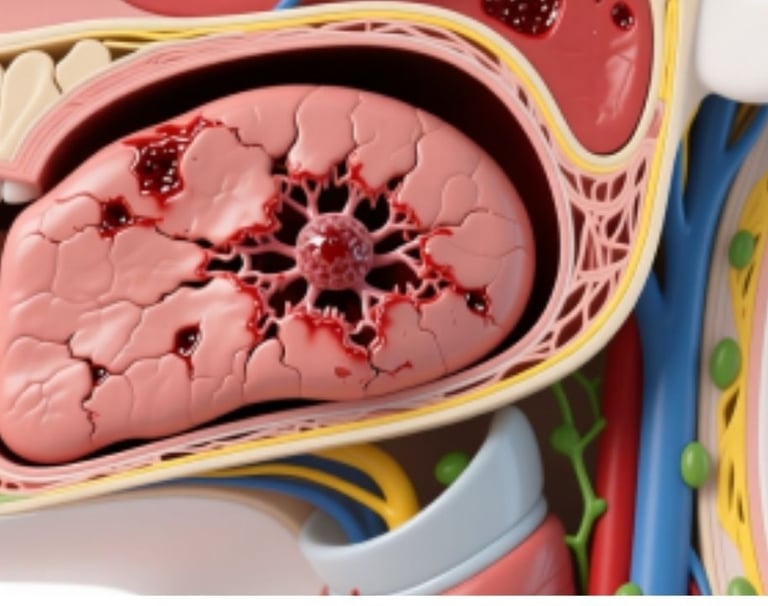

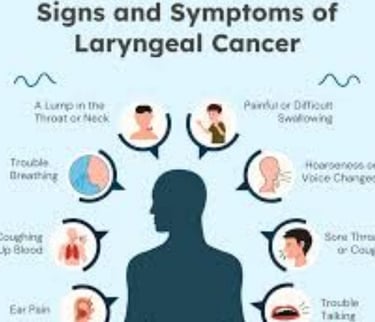

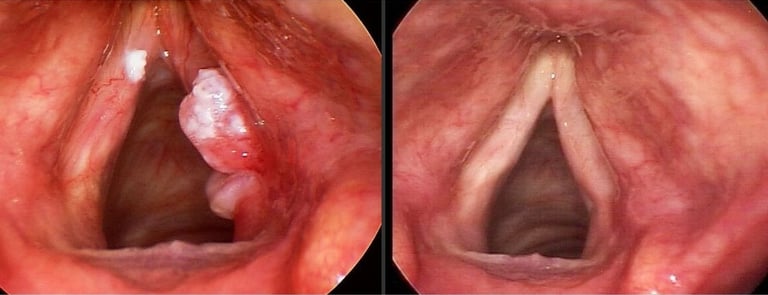

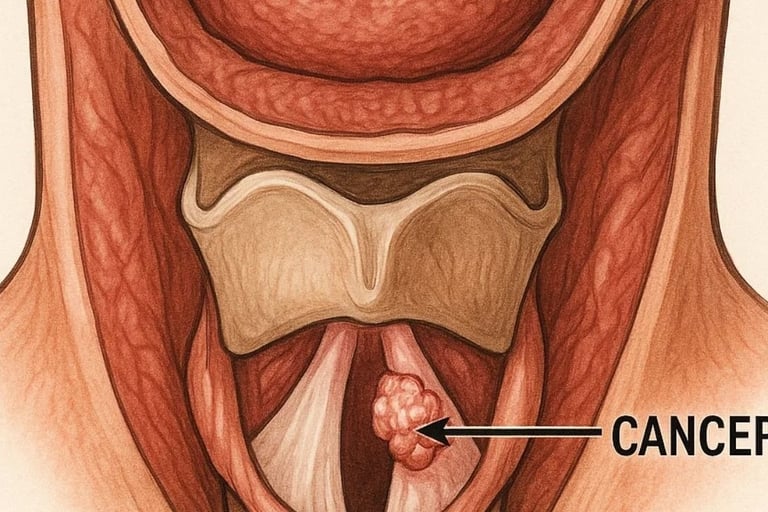

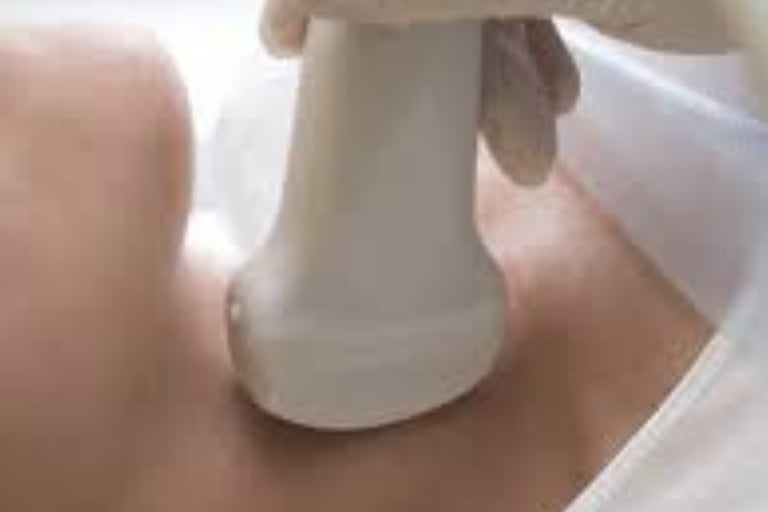



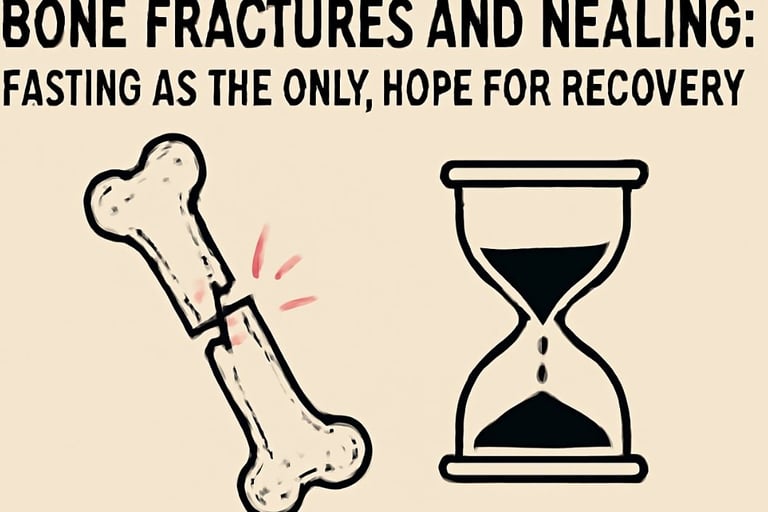

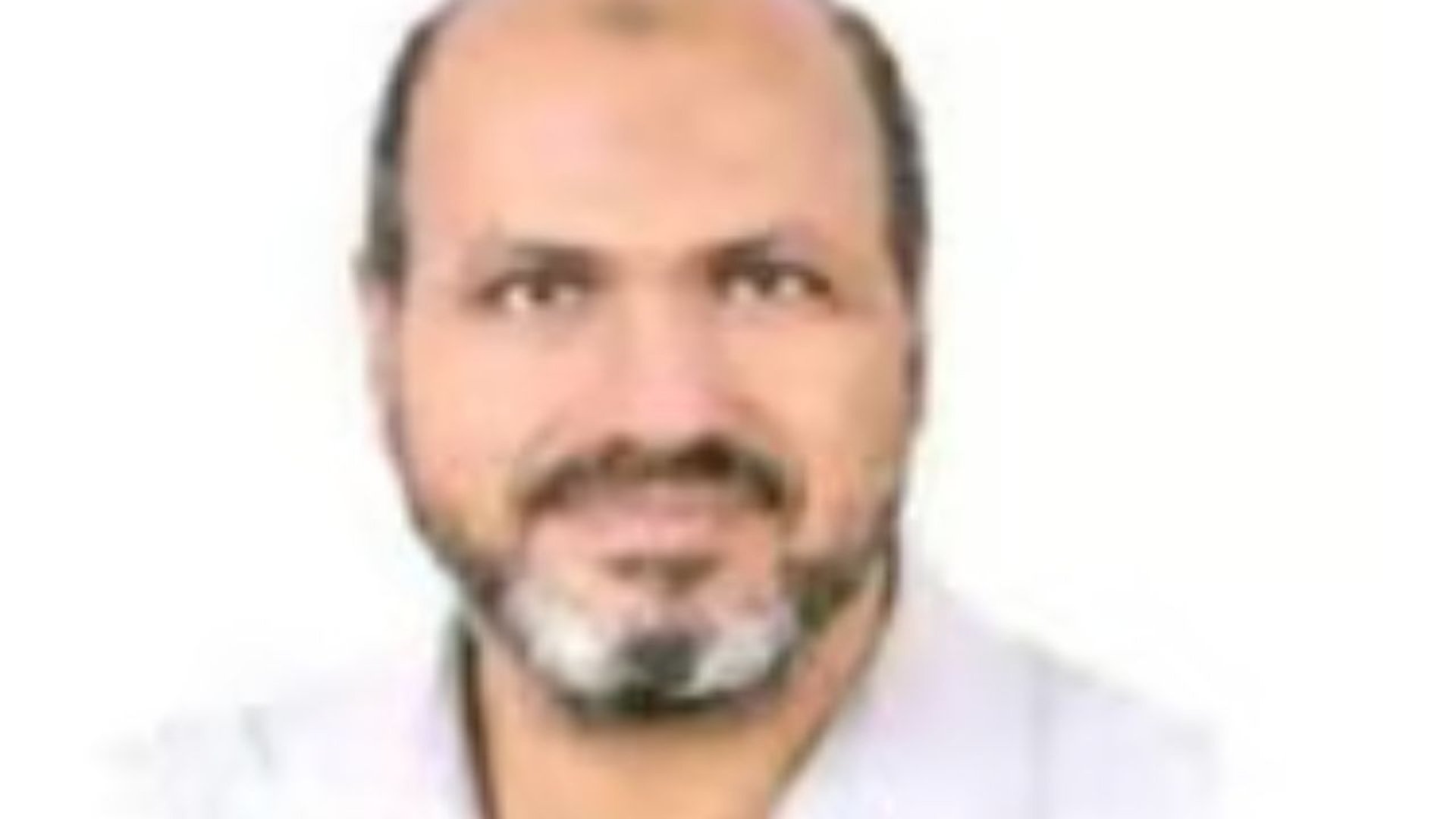
Get in touch
Address
Cairo Al Rehab
Contacts
+20 109 405 2056
hassanalwarraqi@h-k-e-m.com
